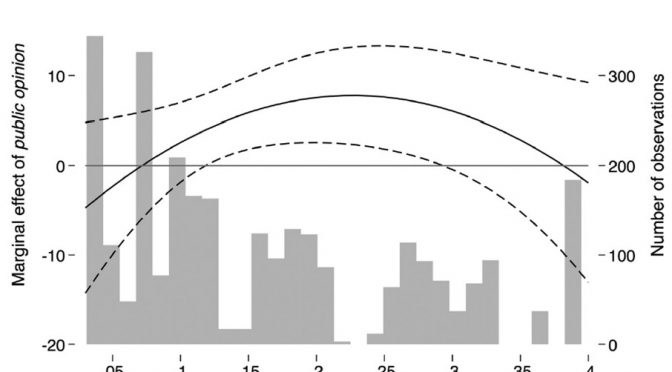In the European Union, states can distribute enforcement prerogatives between a supranational agency, over which they exercise equal influence, and a Council of ministers, where power resources mostly vary by country size. What shapes attitudes towards different enforcement designs? States at greater risk of noncompliance should eschew deeper cooperation and prefer procedures over which they can exercise more influence. Employing an original data set of positions on relevant contested issues during the negotiations over fiscal governance rules from 1997 to 2012, we show that governments at greater risk of noncompliance prefer greater discretion and, if they have higher voting power, more Council involvement in enforcement. These factors only partially explain positions on Commission empowerment. Given their greater indeterminacy, attitudes are also shaped by national public opinion.
Franchino F and Mariotto C (2021) Noncompliance risk, asymmetric power and the design of enforcement of the European economic governance. European Union Politics 22(4). SAGE Publications: 591–610. DOI: 10.1177/14651165211023832.

